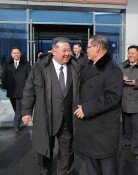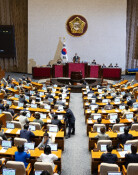[Opinion] Losing Native Land
If fiction is a product of imagination, then nonfiction is a product of reality. Britannica Encyclopedia defines nonfiction as all kinds of recorded literature such as report, autobiography, biography, memoir and diary. The term nonfiction became popular in 1912 when the U.S. magazine Publishers Weekly categorized bestsellers into fiction and nonfiction. Even nowadays, New York Times as well as other respected newspapers and magazines introduce bestsellers using such categorization.
The United States is the country of nonfiction. Even the Pulitzer Prize, a prominent award in journalism, has an award for nonfiction. In the U.S., a woman who once had sex scandal with the incumbent president publishes a memoir. Many publishers offer to pay big bucks to buy a story of imprisoned female soldier at war. One of the most popular activities of its former presidents is to publish memoirs and give lectures. Regardless of how well they served their terms, each of them publish memorandums about their own administrations. The media is relatively generous about these publications.
Lee Chun-sik, this years winner of the 39th Shindonga Prize for Nonfiction, received the award for his autobiography Losing Native Land. Lee, who resides in Tashkent, Uzbekistan and age 70, led a truly dramatic life. He joined the army during the Korean War and worked as a Russian interpreter officer. On the way back to Korea in 1963 after the completion of the U.S. Pacific Information School in Japan, he went to the Russian Embassy in Japan and spent 27 years in various places including Tashkent. It was in 1990 when he came back to Korea. He confessed, The path I had chosen seems a long dream in the spring. I miss Tashkent when I am in Korea, and I want to be in my old home Jeju island when I am in Tashkent, showing his agony to be in-between.
His candid story included the early years of the world of Interpreter Officers, the friendship with Lieutenant Colonel Ko Jae-il, who was the former Minister of Construction, and General Kim Jong-oh, former Chairman of the Joint Chiefs of Staff, his encounter with KGB high ranking official, and the failure to escape to North Korea where his mother was. His personal history manifests another facet of turmoil in Koreas modern history. He is not the only one. Whoever it may be, those who were born on the Korean peninsula and experienced turbulent modern history probably led dramatic, nonfiction lives. A famous poet Byron once said, `Truth is always strange, stranger than fiction. Lee, who led an even stranger life, is spending his later years at a Korean company as head of the Tashkent office.
Oh Myung-chul, Editorial Writer, oscar@donga.com







